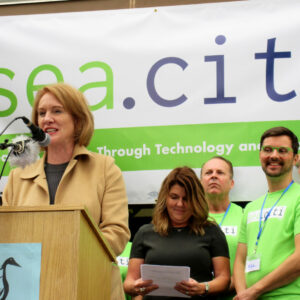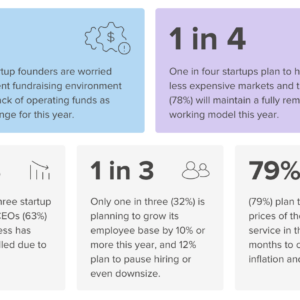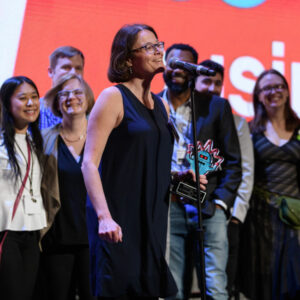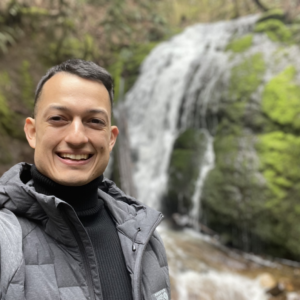
A new startup aims to change how food is preserved and stored, using tech that keeps meat, fish and produce flavorful at subzero temperatures.
“More than a third of the food that we produce now is just wasted or lost in some way. That has a lot to do with the way that we store food and the way we preserve it,” said Paul Levins, co-founder of EverCase, which announced its debut in June.
EverCase’s tech can keep food supple, preventing it from turning into a frozen block at temperatures as low as -12 degrees Celsius, according to company studies. Its food cases can be adapted to preserve everything from whole fish to steaks and berries, and they can fit within standard freezers.
The 8-person startup has roots in Seattle and operations in the city. Levins and CEO and co-founder Chris Somogyi previously were executives at Intellectual Ventures spinout Xinova, which helped match inventor ideas with customers and shut down last year.

Somogyi later founded BlueNalu, a startup that markets fish products grown in cell culture.
Somogyi also took a role as business development lead at Xerox subsidiary PARC, a fabled Silicon Valley research and development company known for helping to develop laser printing, Ethernet and graphical user interfaces. That’s where the idea for EverCase began to develop.
Somogyi was intrigued by technology being developed by Soojin Jun, a professor at the University of Hawaii and an EverCase co-founder. Jun’s food processing laboratory studies ways of preserving food by supercooling it.
When food freezes, ice crystals damage cellular structures. That’s why a frozen steak tastes like, well, frozen steak. It’s also why liquid oozes from it after thawing.
Jun developed a way of preventing the water in food from forming ice crystals at low temperatures. His device applies electric and magnetic fields to food to enable it to resist ice formation while being cooled.
Researchers have for years performed experiments suggesting that electric fields can affect how ice forms. The reason for the effect is not fully understood, though water molecules have a positive charge at one end and a negative one on the other, and so react to electric fields. Studies also show that magnetic fields, mysteriously, also have an effect on ice formation in food.
“This is a really active area of research,” said Will Cantrell, a professor of physics at Michigan Technological University who studies ice formation in the atmosphere.
Jun’s tech was brought into PARC, which provided seed funding and pulled in additional intellectual property. The team can now harness electric and magnetic fields to cool food to temperatures lower than other systems, said Levins. They also overcame a previous limitation of the technology that required electrodes to be in physical contact with food.
“There are approaches using very high energy pure electric fields. We prefer to have low power and high safety approaches, and flexibility with format and easy hand-off across the cold chain nodes,” said Somogyi, who has a background in bioengineering and is based in Wimberley, Texas.
Somogyi said he did not know of other startups focused on similar technology, though he noted that large companies such as Daikin and Siemens are involved in traditional refrigeration.
Bringing such technology up to an industrial scale brings extra challenges, said Cantrell. The strength of electromagnetic fields wanes with distance from its source. But making it work is potentially highly profitable, he said. “You could extend shelf life and you could extend the reach of your shipping,” he said. Perishable products like berries could also be available beyond their normal season.
After testing out more than 20 prototypes, EverCase has a system ready to take to market. Company studies show that their cases can prevent ice crystal formation in food at temperatures between -4 and -12 degrees Celsius.
The EverCase team is currently scoping out custom systems for early customers. The potential customer base includes food producers and shippers.
“We get all the same benefits of freezing while maintaining quality and texture,” said Levins. “It will disrupt the cold supply chain.” And the company can also make a dent in food waste, he said.
In addition, the system has potential to be adapted to tissue or organs, added Levins, who is based in Sydney, Australia.
Charlotte Guyman, a former Microsoft exec and Berkshire Hathaway director, is a Seattle-based advisory board member for EverCase. The company also has operations in Australia and Spain and is raising a Series A round.





